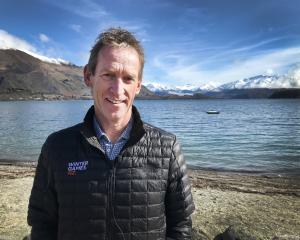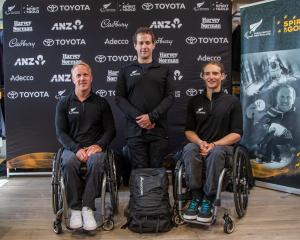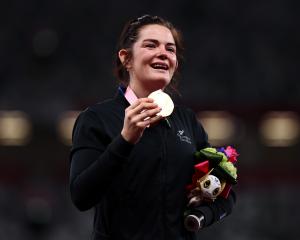Hunter was one of three New Zealand Olympic Academy commissioners to attend an international directors session in Greece which finished last Friday.
Hunter was joined by former Tall Blacks captain Glen Denham, formerly of Dunedin, and retired international netball star Irene van Dyk for the seven-day session which focused on the key reasons for the return of the Olympics in 1896.
"The academy is the educational and philosophical arm of the Olympics so it's mainly concerned with Olympism and honouring the direction of Pierre de Coubertin [founder of the modern Olympics],'' Hunter said.
"When the Olympics first restarted it was through Pierre de Coubertin and it was always designed to be as much a cultural and educational tool as much as a sporting tool. That's the philosophy surrounding the Olympic values which are respect, excellence and friendship.''
The session, held not far from the ruins of ancient Olympia, involved lectures, workshops and group discussions about what the 77 countries represented there were doing to promote Olympism.
'It was really interesting and very international in terms of such a wide mix of countries being there, so it was a really cool experience,'' Hunter said.
"Going back to the Olympism ideals, it was very much around honest pursuit and joy of effort and international understanding, and all those things that tend to get lost in the commercial world. But it's still very much an important part of the Olympic movement.''
New Zealand was well placed in terms of values in everyday life, he said.
"But a lot of countries purely rely on the Olympic values to allow them to approach those concepts through sport.''
There was also a big push from the International Olympic Committee to ensure the sustainability and legacy of the Olympic Games.
"You look at Rio as an example, and they've got massive economic and social issues there.
It's still of high interest to the Olympic movement that countries and cities that host end up better for it.
"It's totally different to Rio, obviously, but London did it well. There's a massive social housing development where the village was that was needed, let alone the emotional lift that the country gets when it hosts the Olympics.''
Educational tools for use in schools were another focus, and Hunter said New Zealand was well served by resources, which were available through the New Zealand Olympic website.
"More than anything, it's just an acknowledgement that everyone's trying to do similar things - promoting values through sport and values in education in their own countries.
"They're all doing them in slightly different ways, and, of course, you've got countries that are economically challenged trying to do, even on a small scale, programmes that promote good values and Olympism.''












